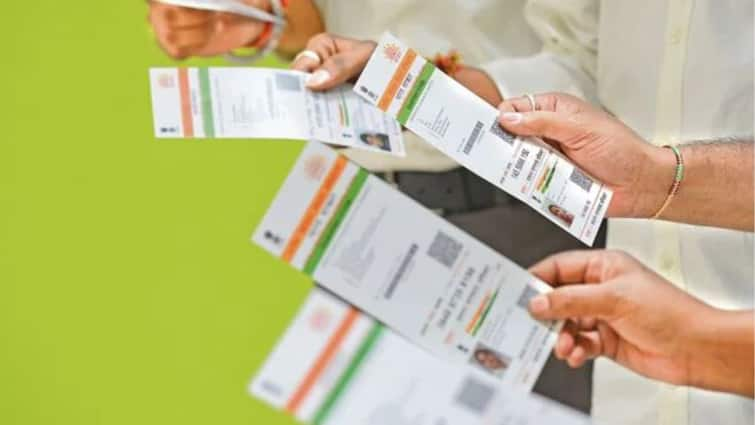The Supreme Court on Monday directed the Election Commission (EC) to recognise Aadhaar as the twelfth valid document for establishing the identity of voters during the special intensive revision (SIR) of the electoral roll in poll-bound Bihar. Currently, Bihar’s SIR exercise requires electors to submit one of 11 prescribed documents with their enumeration forms. The apex court’s order adds Aadhaar to this list.
Bench Clarifies Aadhaar Is Not Citizenship Proof
A bench comprising Justices Surya Kant and Joymalya Bagchi clarified that while Aadhaar may serve as proof of identity, it cannot be treated as proof of citizenship. The judges underlined that the EC retains the right to verify the authenticity of Aadhaar numbers submitted by electors, news agency PTI reported.
“Only genuine citizens will be allowed to vote,” the bench observed, adding that forged documents could not be used as a basis for inclusion in the electoral roll. The court further instructed the EC to issue necessary directions the same day for Aadhaar’s acceptance as an identity document.
According to PTI, Advocate Prashant Bhushan, speaking on the development, said, “The court has ordered that Aadhaar should be accepted as the 12th document, even as a stand-alone document. The Election Commission must issue instructions to all officers conducting this SIR in Bihar to that effect. They have also said that this must be publicised, and further hearings on the other issues raised in a note submitted to the court will be held next Monday.”
EC’s Stand And Supreme Court’s Observations
Senior advocate Rakesh Dwivedi, appearing for the poll panel, told the court that 99.6 per cent of the 7.24 crore voters already featured in the draft roll had submitted valid documents. He argued that allowing Aadhaar as an additional document would not yield much practical benefit.
However, the bench pointed to provisions in the Aadhaar Act, 2016, and the Representation of the People Act, noting Aadhaar’s limited role as identity proof. The court also sought the EC’s explanation regarding show-cause notices issued to election officials who had declined to accept Aadhaar cards from voters.
During an earlier hearing on 1 September, the poll panel informed the court that claims, objections, and corrections to the Bihar draft electoral roll could be submitted beyond that date, but would be considered only after finalisation of the roll. The court emphasised that such claims could be filed until the last date for nomination forms in each constituency.
Highlighting a “trust issue” in the ongoing SIR, the bench directed the Bihar State Legal Services Authority to deploy paralegal volunteers to assist voters and political parties in filing objections and claims.
According to the EC, which opposed extending the September 1 deadline set under its June 24 schedule, 22,723 claims for inclusion and 1,34,738 objections for exclusion had been filed between August 22 and August 30. The draft roll was published on 1 August, and the final electoral roll is scheduled for publication on 30 September.



